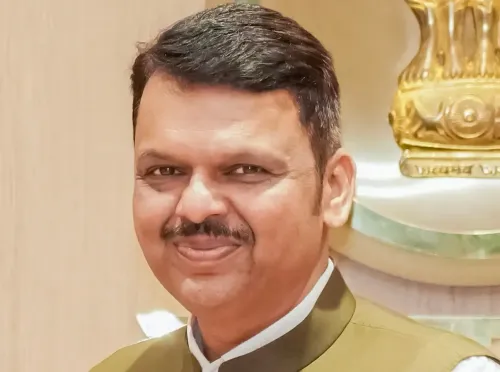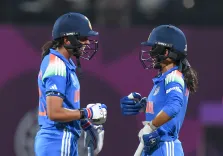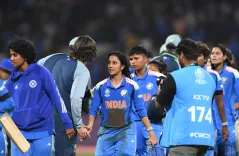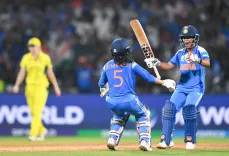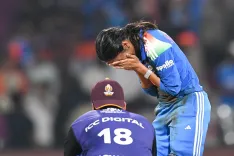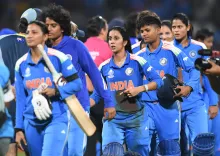What Happened at the First Quad Ports of Future Conference?
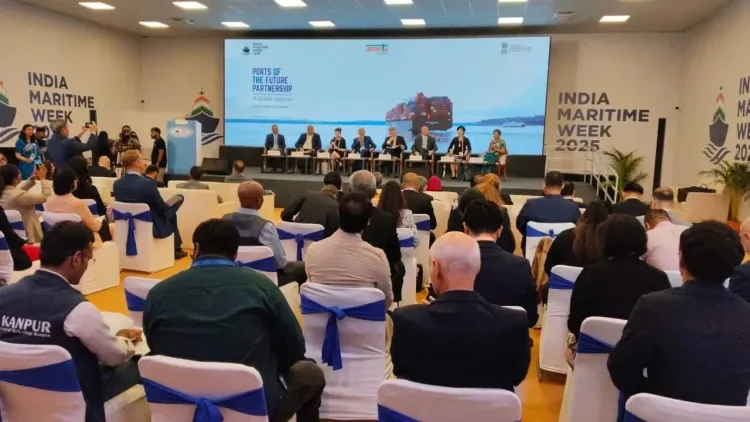
Synopsis
Key Takeaways
- India hosted the first Quad Ports of the Future Conference in Mumbai.
- 120 delegates from 24 Indo-Pacific nations participated.
- Discussions focused on enhancing port infrastructure and collaboration.
- The Quad Initiative aims to improve maritime connectivity.
- The partnership emphasizes a free and open Indo-Pacific.
Mumbai, Oct 30 (NationPress) The inaugural Quad Ports of the Future Conference took place in Mumbai, focusing on discussions aimed at enhancing a collective Quad vision for resilient, secure, and future-ready ports, as stated by the Ministry of External Affairs (MEA) on Thursday.
According to MEA spokesperson Randhir Jaiswal, approximately 120 delegates representing 24 nations from the Indo-Pacific region participated in the event.
“India spearheaded the first Quad Ports of the Future Conference, engaging 120 delegates from 24 partners in the Indo-Pacific. Thematic discussions were focused on propelling a unified Quad vision for resilient, secure, and future-ready ports, enhancing collaboration on infrastructure, financing, regulatory frameworks, workforce development, technology, digital ecosystems, cybersecurity, and sustainability,” Jaiswal shared on X.
A statement from the Ministry of Ports, Shipping, and Waterways highlighted that the Quad Initiative aims to foster modern and resilient port infrastructure development across the Indo-Pacific.
“This initiative aims to leverage the collective expertise of the Quad to coordinate efforts, share information, exchange best practices, and attract both government and private sector investments in quality port infrastructure. This partnership is designed to enhance maritime connectivity, bolster logistics resilience, and improve infrastructure quality in the Indo-Pacific, utilizing the combined resources and institutional expertise of the Quad,” the statement elaborated.
The Quad consists of four countries: India, Australia, Japan, and the United States, all committed to acting as a force for global good and supporting a free and open Indo-Pacific that is both prosperous and resilient.
US Secretary of State Marco Rubio, Indian External Affairs Minister S Jaishankar, Australian Foreign Minister Penny Wong, and then-Japanese Foreign Minister Takeshi Iwaya met in Washington on July 1, 2025, during the 10th Quad Foreign Ministers’ Meeting. The leaders reaffirmed their unwavering commitment to a free and open Indo-Pacific and condemned unilateral actions that aim to alter the status quo through force or coercion.
“We emphasize our commitment to safeguarding the rule of law, sovereignty, and territorial integrity. As leading maritime nations in the Indo-Pacific, we are united in our belief that peace and stability at sea are essential for the security and prosperity of the region. We advocate for a region where all countries are free from coercion and firmly oppose any unilateral actions that attempt to change the status quo through force or coercion,” a joint statement from the Quad Foreign Ministers' Meeting in Washington stated.
The leaders discussed the opportunities and challenges present in the Indo-Pacific and explored ways to further leverage the strengths and resources of the Quad for advancing peace, security, and prosperity, in collaboration with regional partners.



